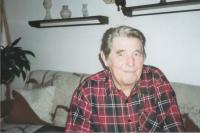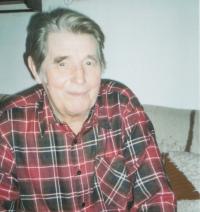There were twenty-seven or twenty-eight of us, and just five remained

Download image
Josef Holý was born in Dubno, Volhynia, on 11 July 1933. At the time, the western part of Volhynia belonged to Poland, but Josef Holý remembers only the final days of Poland’s governance over Volhynia. He experienced the Soviet occupation of Volhynia in 1939-1941, and the Nazi one in 1941-1944. The battlefront returned to western Volhynia in 1944 - this time it was the Soviet army which was pushing from the East and the Wehrmacht which was retreating. In this time, Josef Holý was detained in the village of Alexandrovka with his mother and father, probably to clear out the battlefront zone. They were transported to Brody and then to the camp in Przemyśl. This was followed by camps in Gdynia and then Toruń, where Josef Holý attended a German school and was required to learn German. Shortly before the end of the war, he and his parents managed to escape from the Toruń camp. In February 1945 they were liberated by the Red Army. However, the family did not receive a “bumážka” (a permit) to Czechoslovakia as they had hoped, but back to Volhynia. So they had to return, through Warsaw and the River Bug. They did not come to Czechoslovakia until 1947, during the massive re-emigration wave of Volhynian Czechs. Josef Holý settled down in Hudlice, working briefly as a driver. After military service he moved to Prunéřov (now a part of Kadaň) to work as a bus driver. The bad air in the Chomutov district led him and his wife to take their children and move to Nové Město nad Metují, where he found a job as a new vehicles operative. He now lives with his wife in Nové Město nad Metují.

